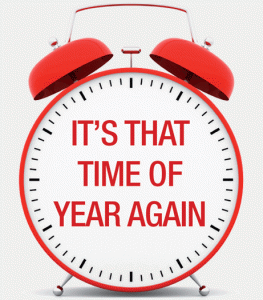Every Monday from April to June, the GATA Network will be sharing advice on how to make your summer productive. This week we start by leading you in a healthy annual review.
The dreaded ‘Personal Review’. Didn’t you just do one of these last semester? Hopefully, yes, but we’re now another semester older and a whole academic year further in our teaching and learning development. While that year is still fresh in our minds, it’s useful to think about just how successful it actually was. Particularly in the summer months, it’s easy to forget about and become detached from our classroom experiences. It’s important to strike while the iron is hot – strike being the operative term for a piercing reflection in this case, and the iron being your recent teaching/learning experiences.
Read more:
Assessing the Semester
Especially in these early stages of post-semester review, it’s important to build some kind of consensus about how you think the semester went, the first reaction you have and the first words that come to mind when summing things up. Les McKeown might call this “managing the narrative” for a business leader, but the same idea applies when constructing your classroom narrative. For example:
“I really reached my students.”
“I never quite hit stride.”
“Classroom discussions proved to be a nightmare”
“The results on the final assignment were completely out of pattern.”
As a general perception or thematic concern, your narrative might reveal your attitude, some general successes/challenges, or some questions you’ve been left with. Whether it’s negative or positive, this initial assessment is a good rallying point for further questions, such as “What was so nightmarish about them?”, “What factors contributed to their nightmare-ness?”, and “How would I have led discussions differently?”
Now return to those questions you asked yourself in December from “Let’s Review“:
- What were your major teaching successes this semester?
- What were your major teaching challenges this semester?
- What have you learned this semester?
- How is your life/work balance?
In tying Fall and Winter together, ask yourself the follow-up questions below:
- Were you able to maintain your successes from Fall into Winter? How?
- Were you able to over-come the challenges you experienced in Fall, or did they continue into Winter? How?
- How did your successes/challenges change from semester to semester?
- How did you apply what you learned in the previous semester? What were the results?
- Did your life/work balance change this semester? Why? What impact did it have on your teaching/studies
Reviewing Your Practices
Most annual reviews come with at least two sections: one that analyzes performance (as in the reflection above) and another that evaluates daily practices. While the two are related, it’s important to consider these practices in and of themselves, transcending context and delving deeper into the specifics actions you take to facilitate learning for yourself and others. As a student teacher, ask yourself the following:
- How would you define your teaching style?
- What strategies do you rely upon in engaging students?
- What makes them effective?
- What limitations do they have?
- When and where are you most efficient? least efficient?
More importantly, this is the part in your review where you should be re-evaluating your practices for what works and what doesn’t. If a strategy didn’t work in Fall and still fell flat in Winter, chances are it isn’t worth a third or forth try, or that it needs to be recalibrated.
Take a Look in the Mirror
With all the discussion or performance-based pedagogy and results-based teaching, it’s easy to forget the personal side of teaching and learning as a teacher. Presumably you’re a living and breathing human being, not a teaching and learning robot. That means you have feelings, you’re habitual (but also, unpredictable), and you’re always changing. It’s useful to spend a little time now and then take stock of yourself and your perspective on teaching and learning. Consider these questions from Yale’s “What’s Your Teaching Philosophy?” primer:
Who are your role models in teaching? What makes them great teachers?
What do you think motivates students?
What are the teaching expectations at the institution where you are applying?
How does your teaching complement your research?
What do you get from teaching that you don’t get from other professional activities?
What are your objectives as a teacher?
The Next Steps
All this reviewing is only good if it leads to some sort of plan, and while you’ll likely have some time before you’re back in the classroom, it’s still useful to be thinking about a plan of action. This could be something formal, like WorldWork’s Personal Development Plan. It could also simply mean seeking out new personal and professional development opportunities from campus sources like Graduate Studies or the Centre for Teaching and Learning, or from outside sources such as Lynda. Either way, the next step starts with identifying areas of improvement, setting goals, and finding resources.




[…] Putting Your Year In Perspective (April 28th) […]